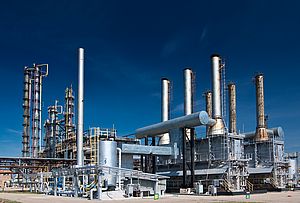Never before has Mexican energy sector reform been both more critical and more attainable. Business Monitor note that without reform and a resulting uptick in foreign investment, the country is set to switch from being one of the largest oil exporters in the world to a net importer by the latter part of its 10-year forecast period. However, while Mexico's ruling Partido Revolucionario Institucional has recently introduced a proposal to remove long-standing limits on private sector involvement in upstream activity - a key first step - Business Monitor believe that whether there is substantial interest from the major international oil companies will be largely determined by the wording of secondary legislation and specific contractual details. As such, although the Mexico Oil & Gas Report highlights substantial upside risks, for now Business Monitor retains its relatively pessimistic forecasts for the sector.
The report forecasts a steady decline in both Mexican proven oil reserves and production over the next decade, with the country likely to become a net importer rather than one of the world's largest net exporters - as is the case at the moment - by the end of its forecast period. This is on the back of several years of declining production, combined with the recognition that it will take a significant amount of time for any new production to come online. Furthermore, the country's most productive fields, especially Cantarell, are maturing at a rapid rate, resulting in a steady trend of reserve depletion. Business Monitor forecast 2013 oil production of 2.94mn barrels per day (b/d), falling to 2.82mn b/d in 2017. Production will end the forecast period in 2022 at 2.59mn b/d.
Business Monitor’s bearish view of Mexican oil production is reinforced by several interconnected fundamentals, including Pemex's relative inexperience in deepwater drilling as well as high tax and debt burdens. Also, the current inability for the company to work with foreign partners also prevents it from spreading capital risk, while also not being able to capitalize on foreign expertise and technology.
The report remarks that Mexican pipeline imports of natural gas have grown almost in parallel with the US natural gas production boom over the last few years. Importantly, because the imported gas is priced at the US Henry Hub benchmark, imports remain cheap despite surging demand growth. These price dynamics have a reinforcing effect, and therefore will support future demand growth. As such, Business Monitor expect this trend to remain in place for the foreseeable future - with its associated negative implications for Mexican domestic natural gas production, underpinning its forecast for Mexican gas production to grow at a modest 1% per annum for the long-term.
The stakes for energy sector liberalisation have therefore never been higher. At the time of writing the report, the ruling Partido Revolucionario Institucional (PRI) has put forward a reform proposal which would amend the constitution to allow private sector actors to play a more significant role in upstream activity. While an important step though, there is some risk that the government party's proposed reform may still not be sufficient to reverse the country's declining oil production as it centres on a profit-sharing model - less attractive to international oil companies (IOCs) than concessions or production-sharing frameworks.
Indeed, given the PRI's more moderate proposal, Business Monitor believe the extent to which Mexico is able to boost investment will be largely dependent on whether forthcoming secondary legislation is favourably written and how lucrative the contract terms on offer are - something that will not become apparent for several more quarters at least. As such, while Business Monitor sees some increased upside potential, for now it maintain its pessimistic forecasts.
























































